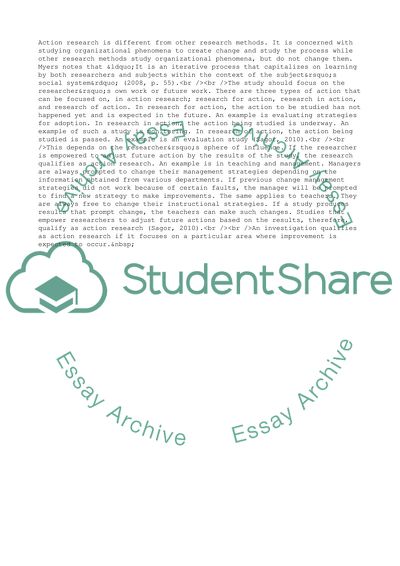Cite this document
(Difference between Action Research and Other Research Methods Coursework Example | Topics and Well Written Essays - 1500 words, n.d.)
Difference between Action Research and Other Research Methods Coursework Example | Topics and Well Written Essays - 1500 words. https://studentshare.org/management/1785900-action-research
Difference between Action Research and Other Research Methods Coursework Example | Topics and Well Written Essays - 1500 words. https://studentshare.org/management/1785900-action-research
(Difference Between Action Research and Other Research Methods Coursework Example | Topics and Well Written Essays - 1500 Words)
Difference Between Action Research and Other Research Methods Coursework Example | Topics and Well Written Essays - 1500 Words. https://studentshare.org/management/1785900-action-research.
Difference Between Action Research and Other Research Methods Coursework Example | Topics and Well Written Essays - 1500 Words. https://studentshare.org/management/1785900-action-research.
“Difference Between Action Research and Other Research Methods Coursework Example | Topics and Well Written Essays - 1500 Words”. https://studentshare.org/management/1785900-action-research.


